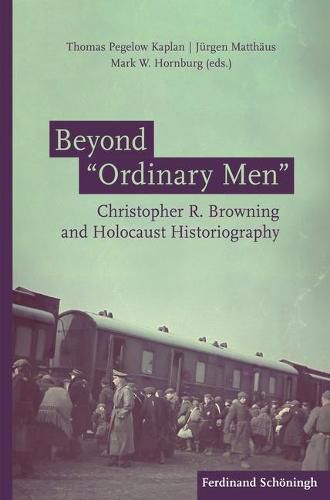Readings Newsletter
Become a Readings Member to make your shopping experience even easier.
Sign in or sign up for free!
You’re not far away from qualifying for FREE standard shipping within Australia
You’ve qualified for FREE standard shipping within Australia
The cart is loading…






Reflecting on the work of one of the field’s most influential scholars, the twenty essays in this book explore the evolution and application of Holocaust historiography, identify key insights into genocidal settings and point to gaps in our knowledge of humanity’s most haunting problem. Why do they kill? The publication in 1992 of Christopher R. Browning’s Ordinary Men raised crucial, previously unasked questions about the Holocaust: what made the members of a German police battalion - middle-aged family men of working- and lower-class background - become mass murderers of Jewish children, women, and men? How does motivation tie in with other factors that prompt participation in the final solution? And what can survivor accounts convey about genocide perpetration? Reflecting on the work of one of the field’s most influential scholars, the twenty essays in this book explore the evolution and application of Holocaust historiography, identify key insights into genocidal settings and point to gaps in our knowledge of humanity’s most haunting problem.
$9.00 standard shipping within Australia
FREE standard shipping within Australia for orders over $100.00
Express & International shipping calculated at checkout
Reflecting on the work of one of the field’s most influential scholars, the twenty essays in this book explore the evolution and application of Holocaust historiography, identify key insights into genocidal settings and point to gaps in our knowledge of humanity’s most haunting problem. Why do they kill? The publication in 1992 of Christopher R. Browning’s Ordinary Men raised crucial, previously unasked questions about the Holocaust: what made the members of a German police battalion - middle-aged family men of working- and lower-class background - become mass murderers of Jewish children, women, and men? How does motivation tie in with other factors that prompt participation in the final solution? And what can survivor accounts convey about genocide perpetration? Reflecting on the work of one of the field’s most influential scholars, the twenty essays in this book explore the evolution and application of Holocaust historiography, identify key insights into genocidal settings and point to gaps in our knowledge of humanity’s most haunting problem.